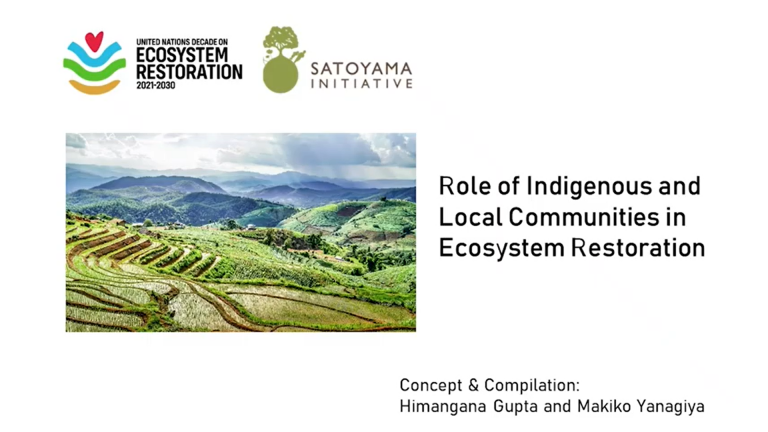IPSI Newsletter

TOPIPSI NewsletterIPSI Newsletter, June 2021
IPSI Newsletter, June 2021
2021.06.30
Dear IPSI members and friends,
Greetings from the IPSI Secretariat in Tokyo, Japan.
The rainy season began in Tokyo and the hydrangeas are looking their best. Such seasonal charm brings little pleasures even on a gloomy day. We hope that all of you are also enjoying the nature around you in everyday life.
This month’s newsletter contains a feature on the launch of the UN Decade of Ecosystem Restoration, updates on recent IPSI activities and the Secretariat staff change, brief reports on events, an announcement for the Satoyama Development Mechanism (SDM) 2021, plus an introduction of a case study from VICAM.
As always, please feel free to contact us to submit any new case studies or other information about your activities, or if you have any questions or comments.
IPSI Secretariat
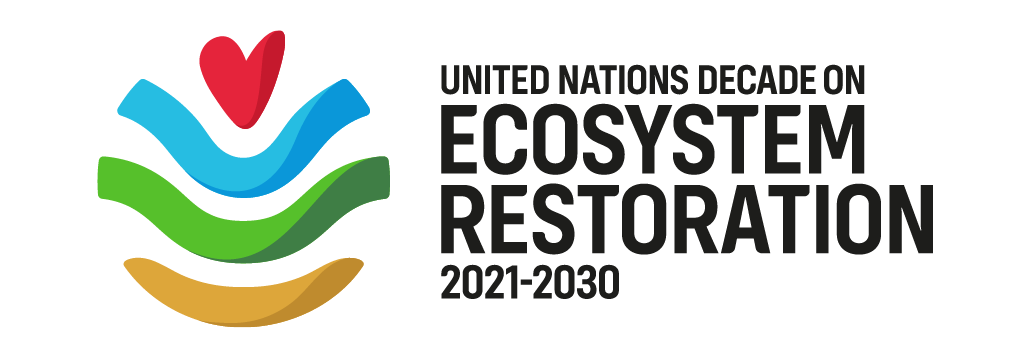
The launch of the UN Decade of Ecosystem Restoration
This year’s World Environment Day marked the launch of the UN Decade on Ecosystem Restoration. On this occasion, Dr. Himangana Gupta of the IPSI Secretariat’s produced a documentary video titled “Role of indigenous peoples and local communities (IPLCs) in ecosystem restoration” to enhance better understanding of IPLCs’ contributions to ecosystem restoration. We hope that the encouraging messages from the experts could inspire various stakeholders to advance their actions further in this important decade for ecosystem restoration. The video can be viewed by clicking the photo below or on the IPSI website here.
In addition to the documentary, we would like to briefly introduce some of the IPSI case studies on ecosystem restoration. We invite you to visit the IPSI website to read more on their activities.
Farmlands
Implementing organisation: Shumei International
By providing technical supports for the cultivation, processing and marketing of traditional plants, this project demonstrates the effectiveness of ecological agriculture combined with traditional knowledge to improve the livelihoods of indigenous farmers and to protect local ecosystems in the Sierra Madre rainforest in the Philippines.
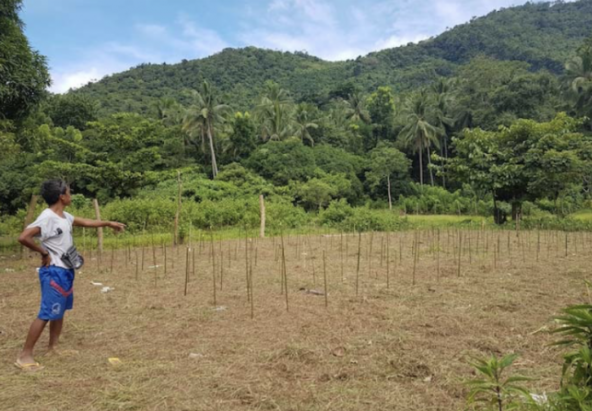
Implementing organisation: Taiwan Landscape Environment Association (TLEA)
The long-term ecological monitoring in Liyu community, located in a hilly mountain area in north-western Chinese Taipei, presents the clear evidence that the sift from conventional farming practices to organic/eco-friendly ones has enhanced both human and ecosystem health. Moreover, it has created a virtuous cycle, where the recognition of farmers on the importance of biological and habitat conservation has increased and a green production chain for organic rice has been developed.
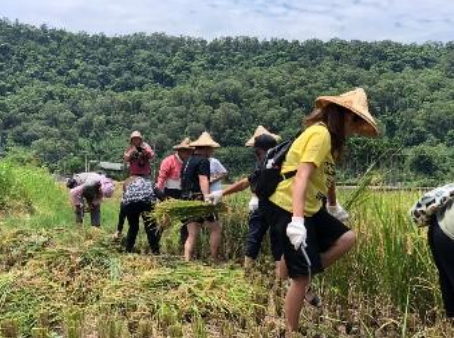
Forest
Implementing organisation: Higher Polytechnic School, University of Santiago de Compostela
This study presents a project for the recovery of sweet chestnut orchards in two public forests in north-west Spain to preserve in situ endangered native cultivars and to protect the associated landscape, ethnographic and cultural values. The study also indicates that “integrating traditional knowledge and modern technologies may be one of the possible strategies for secondary conservation of biodiversity from the perspective of OECMs” (Other Effective Area-Based Conservation Measures).
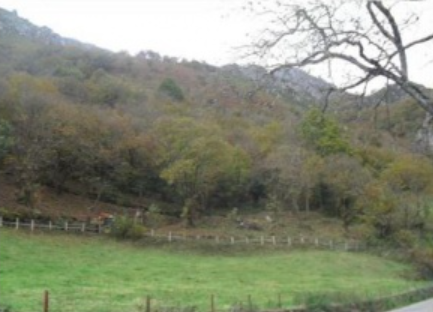
Implementing organisation: Kenya Forestry Research Institute (KEFRI)
This case study features sustained long-term community-led conservation efforts, with which the communities have restored forests degraded due to rapid population growth, overdependence on natural resources and cultural erosion in the southern coastal plains area of Kenya. One of the key outputs of the project is to have enhanced capacity of local communities to raise quality tree seedlings and to monitor the replanted sites. It has also contributed to an increase in household incomes by enhancing sales of value-added and nature-based products and services.
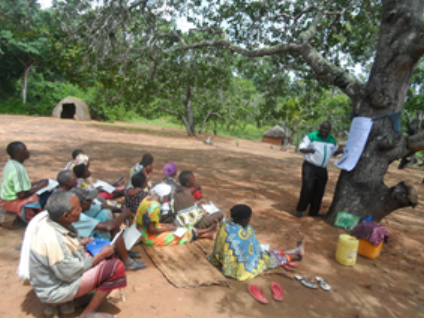
Freshwaters
Implementing organisation: Amis de l’Afrique Francophone – Benin (AMAF-BENIN)
Through the activities of community dialogue workshops and eco-guards training, including a mangrove planting, this project has helped restore wetland ecosystem degraded by anthropic pressure in Ouémé Valley, ranked the second most fertile valley in the world.
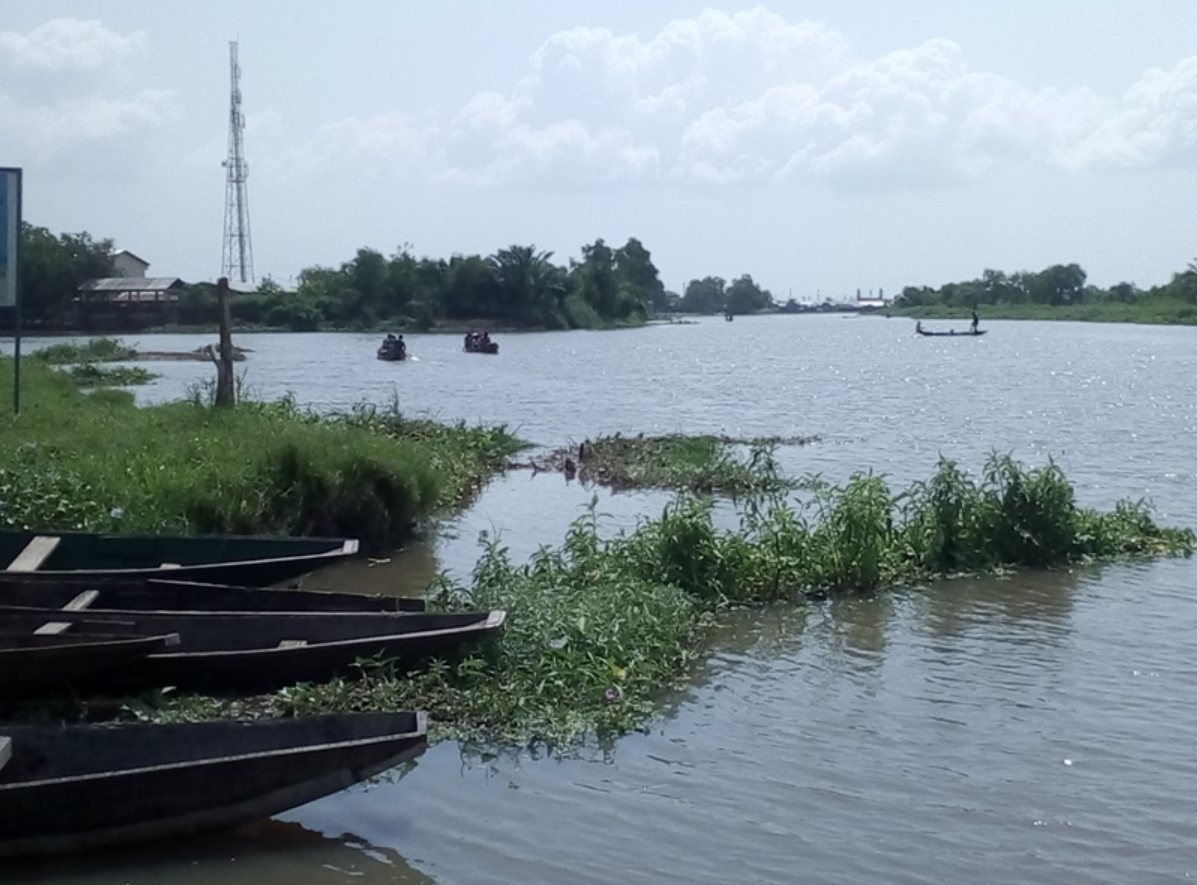
Ocean and coasts
Implementing organisation: United Nations Development Programme (UNDP)
In Semau Island in Indonesia, surrounded by one of the world’s richest coral reefs and providing a rich ecological habitat, a community-based landscape approach supported by the COMDEKS Programme has contributed to building the resilience of socio-ecological production landscapes and seascapes (SEPLS). This has been achieved by developing and diversifying livelihoods, including better seaweed farming practices and organic agriculture, while enhancing biodiversity conservation and ecosystem services through the establishment of environmental forums and community institutions.
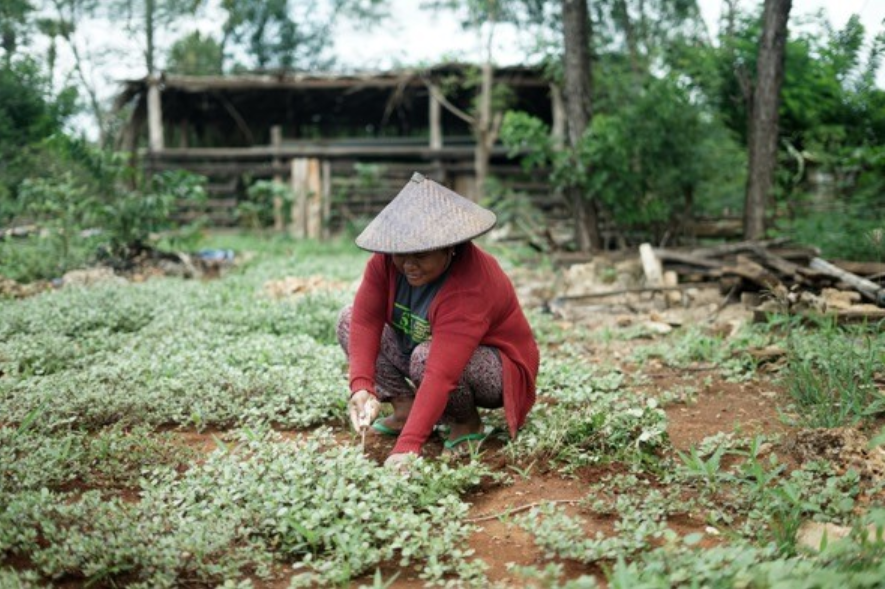
Implementing organisation: Japan Environmental Education Forum (JEEF)
This project planted 5,000 mangroves for enhancing the resilience of the coastal embankment of the Sundarbans, a UNESCO World Natural Heritage of the single largest mangrove forest in the world. In addition, the development of the Sundarbans Mangrove SATOYAMA Conservation Guideline and the Conservation Forum has enhanced environmental awareness of the local communities, and the promotion of traditional fish processing technics has contributed to improving their livelihood.
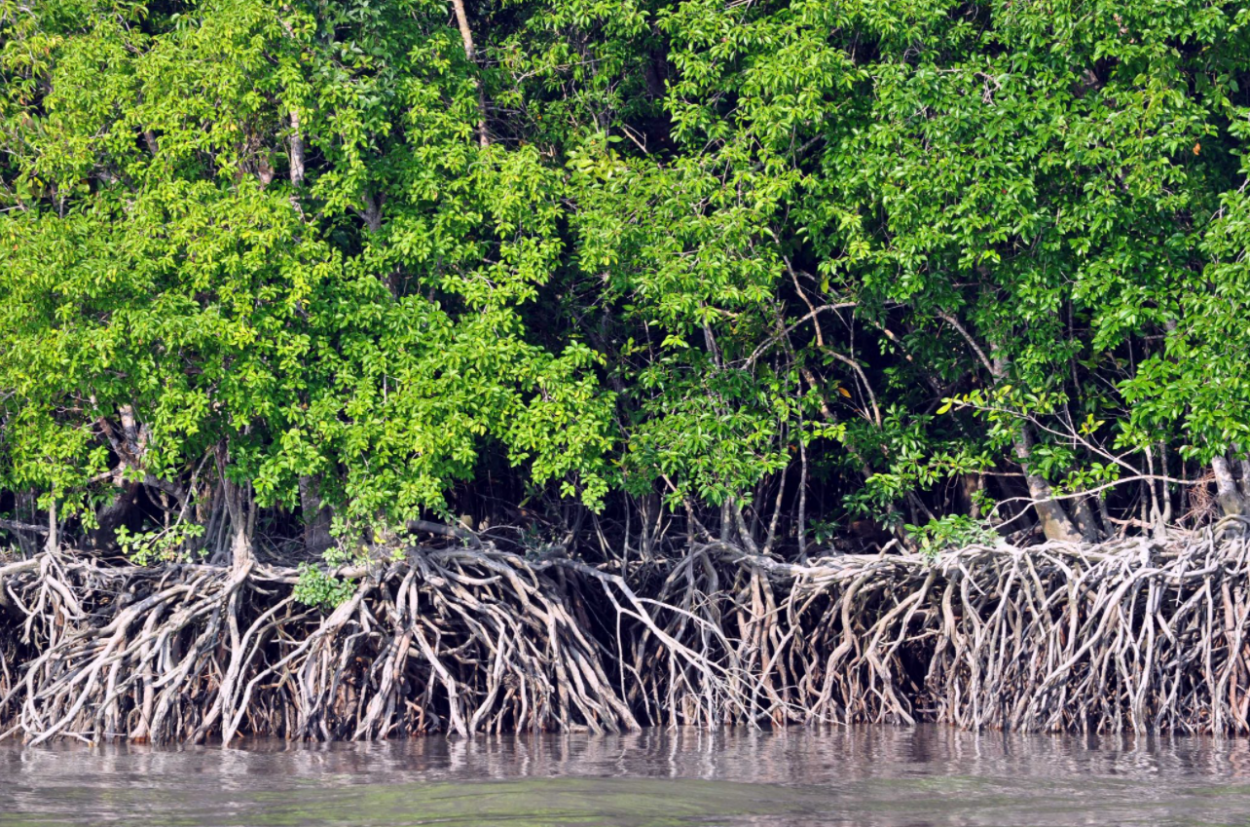
Implementing organisation: Fundación para la Investigación y Desarrollo Social (FIDES)
This study showcases a project committed to the restoration of mangrove significantly destroyed by the shrimp industry, which in turn caused loss of species and deteriorated living conditions for families that have lived off such ecosystem services for generations. The resilience assessment workshops have promoted better understanding of the local communities and organisations on strengths and weaknesses of the SEPLS and helped develop priority action plans to strengthen the resilience of the SEPLS.

Please let us know if you would like us to feature your projects in this newsletter, even the one we have introduced before.
Update on recent IPSI activities
This month, IPSI partners and the Secretariat have actively participated in the series of the Intergovernmental Science-Policy Platform on Biodiversity and Ecosystem Services (IPBES) sessions. At the event of the Stakeholder Days held virtually from 3 to 9 June 2021 prior to its 8th session, Dr. Evonne Yiu of the Secretariat and Mr. Yasuo Takahashi of Institute for Global Environmental Strategies (IGES), IPSI partner, provided information on IPBES function and regional & national platforms/networks of capacity development, respectively.
In addition, the Secretariat is pleased to share that an e-poster submitted by IPSI was displayed during the Stakeholder Days. This virtual poster session aimed to showcase different efforts to promote IPBES findings or demonstrate efforts on the ground, showcasing findings from the Satoyama Initiative Thematic Reviews (SITRs) vol.5 (on multiple values), vol.6 (on transformative change), and the upcoming vol.7 (on health-biodiversity-SDG nexus). These volumes carry practical case examples to contribute knowledge to the IPBES values assessment, transformative change assessment, and the nexus assessment.
For more information, including a video recording, please see the IPBES website here.
The poster can be downloaded here, listed as “The Satoyama Initiative Thematic Review”.
IPSI Secretariat Staff Updates
The IPSI Secretariat has recently undergone staff changes. Dr.Tsunao Watanabe has been appointed as Director of the IPSI Secretariat from 1 June 2021. Dr. Watanabe has been serving as Programme Manager of the Biodiversity and Society Programme at UNU-IAS since October 2020 and as Director of the Operating Unit Ishikawa/Kanazawa (UNU-IAS OUIK) since January 2014. Prior to joining UNU-IAS, Dr. Watanabe was the Director General of the Nature Conservation Bureau of Ministry of the Environment, Japan, after serving as Director of the Biodiversity Policy Division and Councillor for Nature Conservation. He also played a pivotal role in the success of the 10th meeting of the Conference of the Parties to the Convention on Biological Diversity (CBD COP10) in 2010. He graduated from the Faculty of Agriculture of the University of Tokyo in 1978 with a major in landscape architecture and received a Ph.D. from the University of Tokyo in Agriculture.
With his wealth of experience working in biodiversity-related field, we look forward to further developing the IPSI under his guidance.
A message from Dr. Tsunao Watanabe:
Back then at the time of the tenth meeting of the Conference of the Parties to the Convention on Biological Diversity (CBD COP10) was held in 2010, I was working for the Nature Conservation Bureau of the Ministry of the Environment, Government of Japan (MOEJ), and working with UNU-IAS in preparation for COP10. We hold preparatory meetings to launch IPSI and made efforts to show the effectiveness of the Satoyama Initiative at the COP10 decisions.
More than 10 years have passed since then, and I am very pleased to be able to work with the IPSI members again as the Director of IPSI to develop the Satoyama Initiative. It is impressive that the number of IPSI members has grown more than fivefold since its establishment.
In 2011, when the first IPSI General Assembly was held at Nagoya University, the Great Eastern Japan Earthquake and Tsunami Disaster happened and severe natural disasters have also struck all over the world. In addition, the COVID-19 pandemic since last year has had a tremendous impact on our lives. More than ever, there is a strong need to create a resilient and sustainable society that is not easily affected by natural disasters and infectious diseases.
I believe that the experience we have accumulated in activities on SEPLS and the concept of landscape approaches can be a great help in promoting such a sustainable society.
The kick-off event of the UN Decade on Ecosystem Restoration was held on the occasion of World Environment Day on June 5 this year. In addition, the Post-2020 Global Biodiversity Framework is expected to be adopted this year. In response to these important international momentums, I look forward to working with you to further development of IPSI’s activities for the next decade.
SDM 2021 Call for Proposals Now Open
The Secretariat of the Satoyama Development Mechanism (SDM) has opened a call for proposals for SDM 2021. SDM is an IPSI collaborative activity being jointly implemented by the Institute for Global Environmental Strategies (IGES), UNU-IAS, host of the IPSI Secretariat, and the Ministry of the Environment of Japan since 2013. It serves as a financing mechanism to facilitate the implementation of activities under IPSI. It provides grants of up to USD $10,000 to selected IPSI members each year for the implementation of on-the-ground projects, meetings and workshops, research activities, and others. The deadline for applications is Thursday, 12 August 2021.
More information can be found on the SDM website here. If you have any questions regarding the SDM application, please contact the SDM Secretariat directly at sdm@iges.or.jp.
*Please note that SDM application is open to IPSI member organisations only.
Upcoming event: Webinar on environment issues among CPTPP members
The Government of Japan (Chair of the CPTPP Commission in 2021) will organise an online webinar titled “Be Nature Positive!! – Conservation and Sustainable Use of Biodiversity – (tentative)” on 1 July 2021, 10:00-12:00 (JST). This webinar will offer a depth of understanding of conservation and sustainable use of biodiversity as a cooperative effort of CPTPP member countries and relevant organisations under the Environmental Chapter of CPTPP. It includes the topics of Other Effective area-based Conservation Measures (OECMs) and the Dasgupta Review, which are closely related to sustainable production activities. From the IPSI Secretariat, Dr. Evonne Yiu will deliver a keynote speech on introduction of SEPLS and the Satoyama Initiative and Dr Suneetha M. Subramanian will moderate the panel discussion. Mr. Yasushi Hibi, Vice President of Conservation International, an IPSI member, will also make a presentation on introduction of GEF Satoyama project.
The webinar will be delivered via YouTube live stream. Please feel free to share the following link with your colleagues and all those interested in the topic of this webinar.
https://youtu.be/psvZ1gR46QY
*Please note that this event will be held in English only, and no interpretation will be provided.
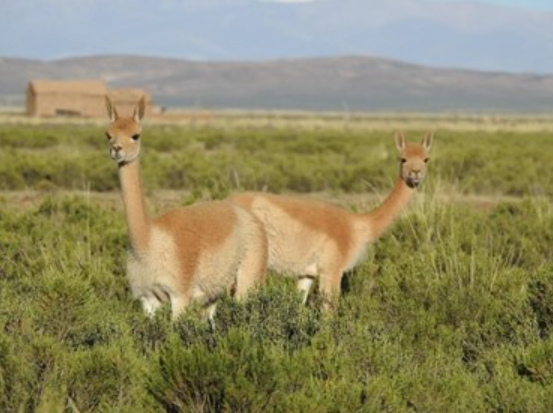
Recent Case Study: VICAM: Vicuñas, Camélidos y Ambiente
We are pleased this month to share a case study recently submitted from VICAM: Vicuñas, Camélidos y Ambiente, an NGO based in Argentina, titled “South American Camelids as biocultural components in the Andean Altiplano of Argentina”.
This case study features sustainable use of vicuñas, which is one of the South American Camelids (SACs) and has supported the Andean livelihoods for over 11,000 years as food sources and daily goods (e.g. leather and fur), among others. SACs are a key component of the Andean biocultural heritage and have generated culturally distinctive socio-ecological systems, called “Andean pastoralism”. For the conservation of the landscape, wild flora and fauna and endemic livestock in the area as well as the reduction of poverty and the empowerment of the local communities and women, VICAM has conducted several activities since 2000. The activities include assessment of pastoral systems and vicuña populations, estimation of the impact of pastoralism on wetland ecosystems, environmental education and development of wild vicuñas management techniques. As a result of such activities, VICAM has recovered an ancient pre-Hispanic wildlife capture technique in collaboration with local Andean communities, and has helped generate income for deprived indigenous communities, which has given them incentives of conservation of ecosystems and species.
VICAM is currently working with SDM2020 aiming at sustainable use of camelids and their fibre as resources to improve local livelihoods in post-pandemic.
For the full case study, please see the IPSI website here.
Contact
Please be sure to let the Secretariat know if there are any changes in your e-mail address or contact information.
Secretariat of the International Partnership for the Satoyama Initiative
United Nations University Institute for the Advanced Study of Sustainability (UNU-IAS)
5–53–70 Jingumae
Shibuya-ku, Tokyo 150-8925
Japan
Tel: +81 3-5467-1212
Fax: +81 3-3499-2828
Email: isi@unu.edu
If you have been forwarded this newsletter and would like to SUBSCRIBE, you can do so on the IPSI website here.



